At Least Nine Iranians Die During Karbala Pilgrimage
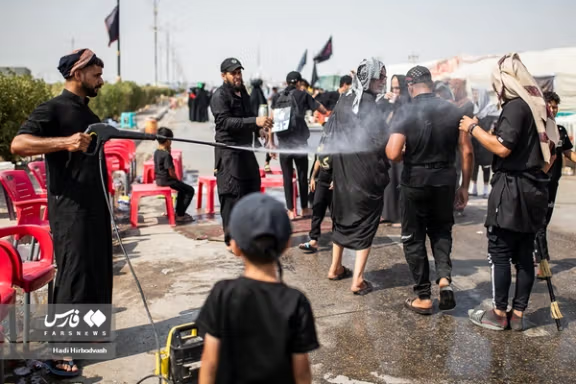
Iran’s Red Crescent Society announced Friday that at least nine Iranians who were on a pilgrimage to the Iraqi city of Karbala for a Shiite religious event have died.

Iran’s Red Crescent Society announced Friday that at least nine Iranians who were on a pilgrimage to the Iraqi city of Karbala for a Shiite religious event have died.
Pir-Hossein Kolivand, the head of the Iranian Red Crescent Society (IRCS), said that more than 8,400 Iranian pilgrims have been treated or got an IV at the society’s makeshift clinics for cases such as extreme dehydration or low blood sugar in and around the Iraqi cities of Karbala, Najaf, and Kadhimiya.
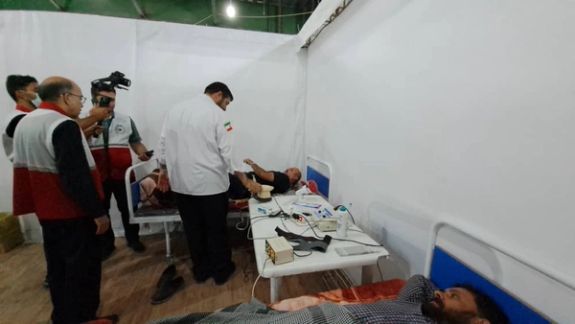
Social media is full of posts and videos of people complaining about the crowded border crossings with insufficient facilities.
Mojtaba Khaledi, the spokesman for the Iranian Medical Emergency Organization, said on Thursday that over 10,300 pilgrims have been referred to healthcare stations with signs of heatstroke.
Three more Iranians died earlier in the week in Iraq's Wasit Governorate, which borders the Islamic Republic.
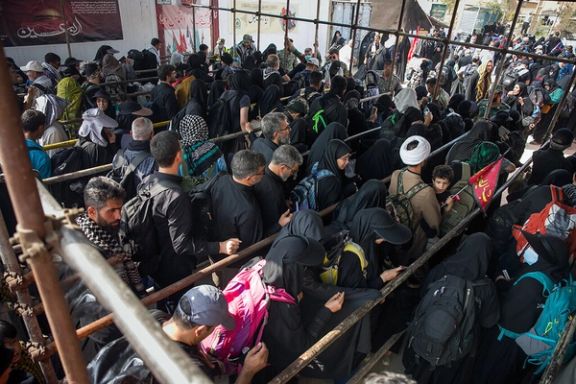
Earlier in the day, Iraq and Iran closed land borders over safety concerns as millions of Iranian pilgrims supported by Tehran were on the move to reach Karbala for Arbaeen. The pilgrimage is on the occasion of Arbaeen, the 40th day after the death of the third Shiite Imam, Hussain Ibn Ali, who was killed in a power rivalry by the reigning caliph in a clash in Karbala in 680 AD.
Majid Mir-Ahmadi, the head of the Arbaeen pilgrimage headquarters, said that “in the wake of worrying incidents that happened at the Shalamcheh and Mehran borders and serious threats to the health and security of the pilgrims, high-ranking officials decided to close borders until further notice,” mentioning “a lack of proper infrastructure in Iraq for accepting the pilgrims” and “hot weather" as reasons behind the decision.
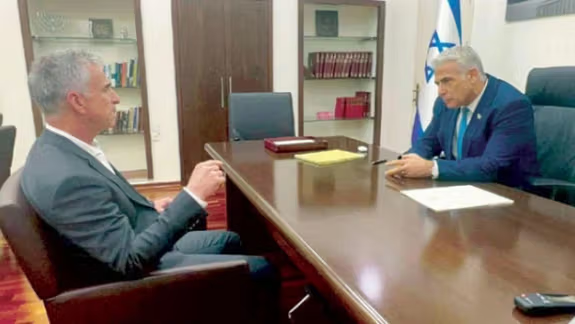
Mossad chief David Barnea has shared "sensitive intelligence materials" with heads of CIA, FBI, Pentagon and other top officials, warning US against being cheated by the Islamic Republic’s lies.
Barnea, who wrapped up on Thursday a trip to Washington for high-level talks as part of Israeli efforts against reviving the 2015 nuclear deal with Iran (JCPOA), held meetings with CIA chief William Burns, FBI Director Christopher Wray, National Security Adviser Jake Sullivan, US Defense Secretary Lloyd Austin, Chairman of the Joint Chiefs of Staff Mark Milley and some senior officials at the State Department.
According to a statement by the Prime Minister’s Office, the Mossad chief showed the officials “sensitive intelligence materials” and stressed “Israel will not be able to stand idly by while Iran continues to deceive the world.” “The enrichment of uranium to 60% means that they now have the tools and can make at least one nuclear bomb,” Barnea told US officials.
“The director of the Mossad heard from his counterparts that the US remains committed to the security of the State of Israel,” the statement read, adding that “The Americans emphasized that they will not allow Iran to obtain a nuclear weapon and that they will continue to act in full cooperation with the State of Israel with regards to regional issues in the Middle East concerning the security of the State of Israel.”
Barnea is the third Mossad chief who has fought against Iran’s nuclear dealover the last decade in visits to Washington. Tamir Pardo in 2012, before the interim deal that led to the JCPOA, and Yossi Cohen in April 2021, in the heat of America's first round of negotiations to return to the deal, tried to dissuade Washington from signing an agreement with Iran.
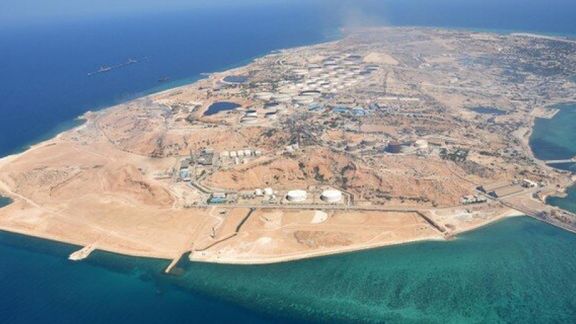
Iran has reasserted its claim to sovereignty over three Persian Gulf islands after Gulf Cooperation Council (GCC) foreign ministers met this week in Riyadh.
Foreign ministry spokesman Nasser Kanaani said Friday that Abu Musa, Greater Tunbs, and Lesser Tunbs were all Iranian, rejecting the GCC view that the islands belong to the United Arab Emirates (UAE). Kanaani said the GCC claim was “opening the security equations of the region to foreigners.”
The three islands have been in dispute since the British withdrew their armed forces in 1971 and Mohammad Reza Shah sent the Iranian navy to secure all three. Iranian forces remain on the islands, with only Abu Musa having much of a civilian population at several thousand.
Kanaani stressed Tehran’s wish for improved relations with the GGC member states, a central commitment of President Ebrahim Raisi since taking office in August 2021. Relations between Iran and the six GCC member-states have thawed with August’s return to Tehran of Kuwaiti and Emirati ambassadors, and with cautious Saudi-Iran dialogue since last year mediated by Iraq.
Raw nerve
But the statement closing the GGC foreign ministers’ meeting, their 153rd, in making a routine reference to three islands, has touched a raw nerve in Tehran amid wider tensions. Amongst the GCC, Qatar and Oman would welcome the return of the 2015 nuclear deal, the JCPOA (Joint Comprehensive Plan of Action), and have both mediated between Tehran and Washington.
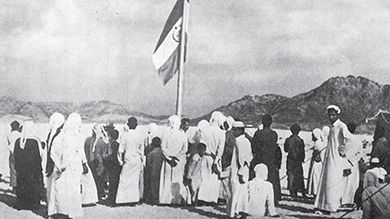
But even after President Joe Biden’s July visit to Jeddah, Saudi Arabia remains skeptical. The Saudis loudly opposed the JCPOA when it was agreed in 2015, and Crown Prince Mohammad bin Salam closely identified with President Donald Trump, who withdrew the US from the JCPOA in 2018.
In a piece Friday, Fars News republished a 2006 article written by Hossein Shariatmadari, long-serving editor of the flagship principlist daily Kayhan, establishing the “historical and legal reasons for Iran’s ownership.”
Maps from ancient Greece
With barely concealed contempt for the six nations of the GCC, none of which he pointed out had existed for as long as 100 years, Shariatmadari referred to maps and documents going back to ancient Greece, arguing that geographers and officials had considered the islands part of Iran. Shariatmadari gave particular mention to the work of the British, including an 1881 Royal Navy map with “the three islands and the soil of Iran” in the same color.
Shariatmadari headlined his 2006 article Avaz Kuche Baghi, ‘songs of the garden alleys,’ referring to old stories of passers-by singing to keep up their spirits as night fell. Similarly, the editor suggested, the Arab monarchs of the Persian Gulf ‘sang’ to dampen their fears of the “earthquake that the Islamic Revolution has thrown on their medieval and illegal governments” whose people lacked “the least involvement” in “the rule of one family.”
Shariatmadari also argued that Bahrain, which became an independent state 1971, had been “separated” from Iran in an “illegal conflict.” After the British took over Bahrain in the late nineteenth century there was agitation in the Iranian parliament by the 1950s to declare it an Iranian province, but Shah Mohammad Reza abandoned Iran’s claim in 1970.
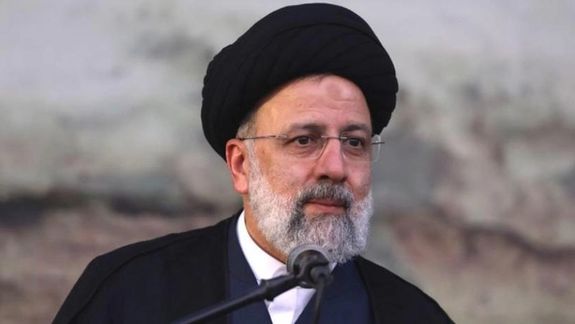
A bipartisan group of 52 US representatives has called on President Joe Biden to deny necessary "entry visas" for Iran’s President Ebrahim Raisi and his delegation to attend the UN Assembly.
The lawmakers led by Rep. Young Kim (R-CA), wrote in a letter published on Thursday, "The United States cannot overlook Ebrahim Raisi’s direct involvement in gross violations of internationally recognized human rights, including the 1988 organized mass murder of thousands of political prisoners, among whom were women and children, by the Iranian regime."
The lawmakers told the President that “Raisi was a documented member of the Tehran 'death committee,' the group responsible for overseeing the massacre. It is highly concerning that Raisi and other members of the so-called ‘death committee’ have not been investigated and charged with crimes against humanity.”
Also on Thursday, a group of 500 Iranian-American scientists, academics, and professionals urged Biden to pursue Raisi’s international prosecution, saying that “Raisi does not represent the people of Iran and therefore must be denied entry visa to the US."
Since early August, eight Republican Senators, former US ambassador to the United Nations Nikki Haley, and former secretary of state Mike Pompeo have asked Biden to deny a visa to Raisi who plans to travel to New York City for the upcoming 77th United Nations General Assembly, which opens on September 13.
Raisi – who is on US and European sanctions list -- did not attend the UN meeting in 2021 and only delivered a video speech.
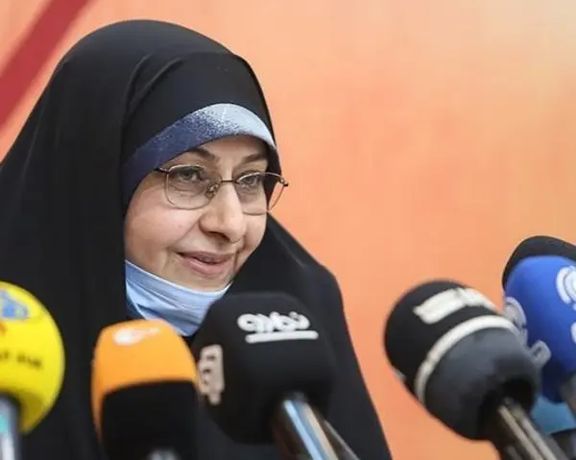
Iran’s Vice President for Women and Family Affairs Ensieh Khazali has denied reports about her son’s immigration to Canada that caused uproar among the Iranian community.
In a series of tweets on Wednesday, Khazali claimed that her son, Hamidreza Rezazadeh, is on a temporary business trip abroad aimed at enhancing the country’s “knowledge-based sector,” in reference to the Supreme Leader’s call for a knowledge-based economy.
Ali Khamenei designated the new Iranian calendar year as the year of knowledge-based productivity and job creation. He has been designating slogans for each year in the past decade, such as “Leap in Production”. Iranian officials and organizations try to portray their activities as if they are in line with the Khamenei-designated motto.
Khazali added that her son never planned immigration, “although he is married and independent,” and criticized those who spread the rumor, noting that “Fortunately, the job project is near completion and he will return to the country in the coming months.”
“Undoubtedly, [efforts] to lay the foundation for knowledge-based activities in the country stem from patriotism,” she said
Calling for her dismissal, university professor and political activist Rahmatollah Bigdeli said, “If I were in Mr. Raisi’s shoes, I would fire Mrs. Khazali not because of her son's stay in Canada, but because of this kind of ridiculous abuse of this year’s designation by the Supreme Leader.”
In early August, an official criticized the high number of “senior officials” whose relatives are living abroad, confirming that there are over 4,000 sons and daughters who have left Iran.
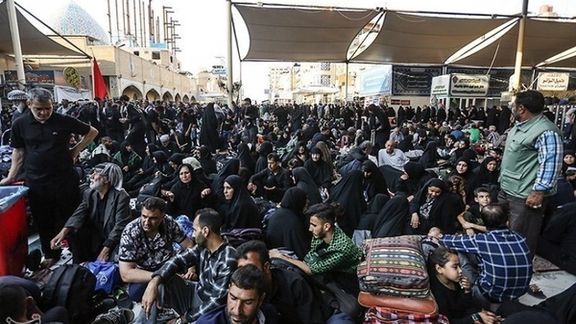
Iraq and Iran have closed land borders as millions of Iranian pilgrims supported by Tehran were on the move to reach Karbala to mark a Shiite religious event.
The Iranian government’s office organizing the Arbaeen pilgrimage said Friday, “Because of worrying incidents at [two border crossings] and serious dangerous incidents occurring for the security and wellbeing of pilgrims” the borders are closed.
Although Iranian authorities say they made the decision, but Iraq already closed border crossings Thursday afternoon because of congestion and high temperatures. Reports from Iraq say that the government has closed also internal roads leading to Krabala, the venue of the gathering, because existing infrastructure reached its full capacity.
The Iranian government has been advertising the pilgrimage with all its official media and religious organizations and offering financial help to potential pilgrims in the past few weeks. As late as Thursday, top Iranian officials, including the interior minister, were re-assuring the public that everything was coordinated with Iraq and the pilgrimage would continue throughout September.
But unexpectedly Iraq closed two major crossing points Thursday evening and Iran announced Friday morning that pilgrims who have made arrangements should change their plans and people with bus tickets can get their money back. It also said no more passports will be issued in person and those who have applied will receive them through the mail.
The pilgrimage is on the occasion of Arbaeen, the 40th day after the death of the third Shiite Imam, Hussain Ibn Ali, who was killed in a power rivalry by the reigning caliph in a clash in Karbala in 680 Ad.
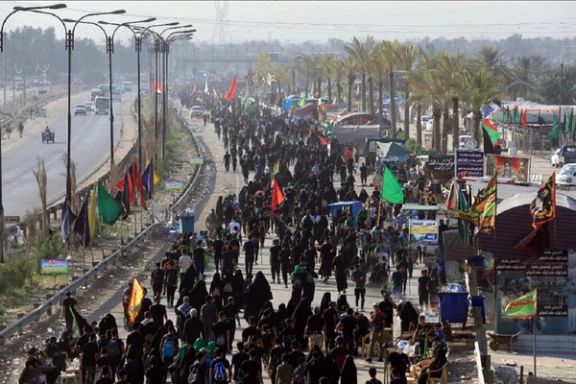
The battle and Hussain’s death is the main pillar of Shiite beliefs. The minority sect in the Muslim world believes that Hussain was the rightful successor to the first four Muslim rulers, being Prophet Muhammad’s grandson and the son of the fourth caliph Ali.
Iranian officials said Friday that conditions in Iraq were simply not ready for accepting a flood of hundreds of thousands of people that could well turn into millions of pilgrims not only from Iran but also Pakistan and Afghanistan.
However, the Arbaeen March to Iraq’s Karbala is a new phenomenon pushed by the Islamic Republic to show the power of Shiites who are a minority in the Muslim world and in West Asia.
Just a decade ago Arbaeen was marked in Iran’s religious centers and there was no tradition of a march to Karbala, but the government with its army of religious institutions and networks began to cultivate concept and with financial appropriations turned it into a millions-strong annual gathering.
This year, the government is offering $100 to each pilgrim, plus a loan of $160 to facilitate the march. In addition to that, transportation, food, medical services, free Wi-Fi and other services are offered. In all, it is estimated that Iran will spend at least $500 million this year despite its dire economic circumstances.
Iraq also experienced political upheaval in August between Iran-backed Shiite groups and followers of Muqtada Sadr, an influential Shia cleric opposed to Iran’s influence in the country.
In 2019, The New York Times quoted an influencial Iranian media boss, Hossein Sulaimani, as saying, “Arbaeen is a display of power for Iran and a showcase of unity among Shiites in the region."